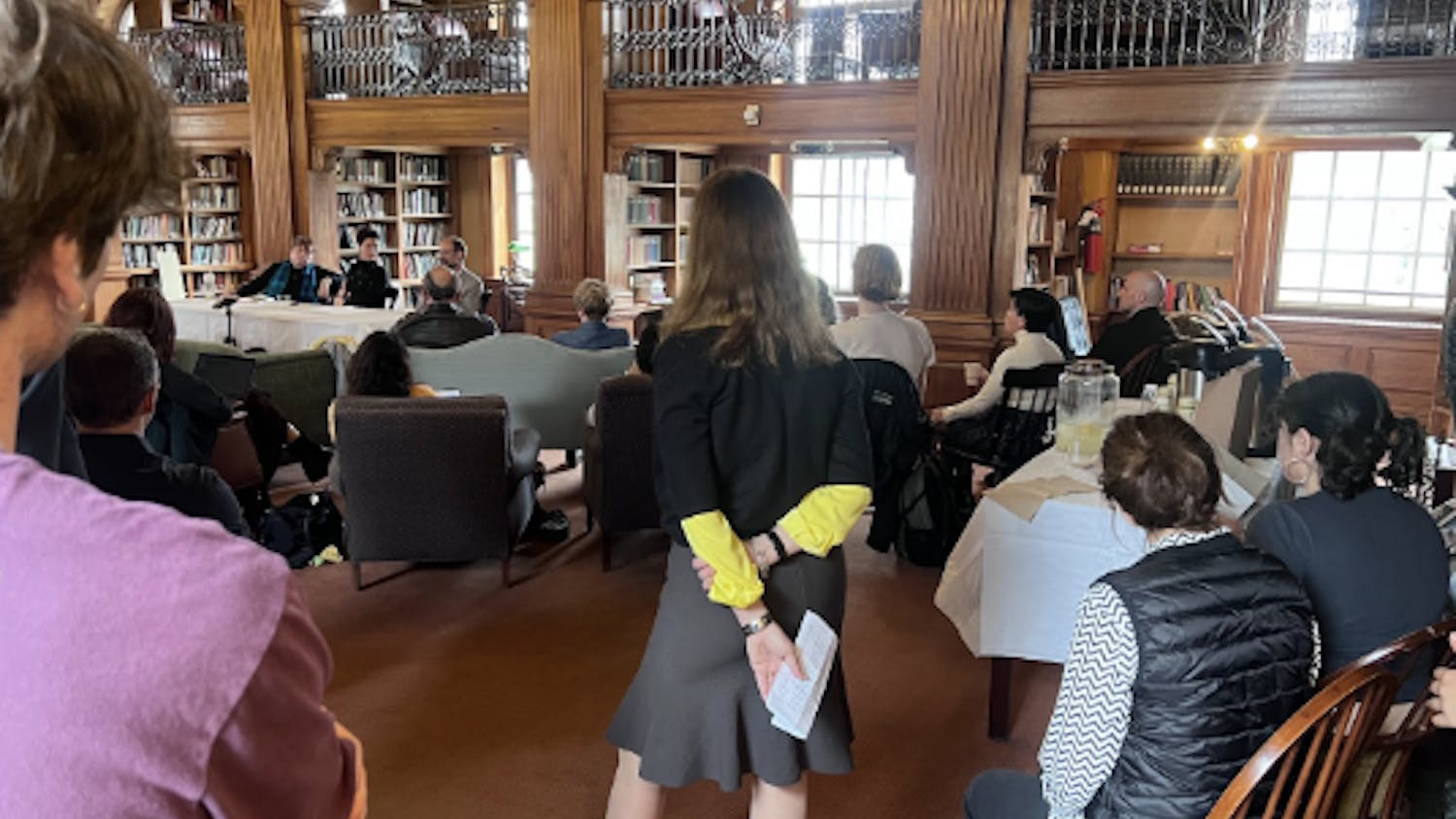Opera, the artistic ber-child of European composers and upper-class intellectuals, has always lagged in America, especially during the 20th century. Now the cultured elite have traded in their prim theater binoculars for tasteless humor as they ridicule instead of feign interest in grand, operatic splendor.
On Tuesday night, with the arrival of performance troupe La Gran Scena, the Hopkins Center promised the audience a modern challenge to traditional opera. Instead of an entourage of haughty divas spreading their arms across an expanse of stage, Spaulding welcomed a line of prima donnas resembling washed-up lounge singers. They jockeyed for prime spotlight position, dredged up forced falsettos and stumbled around the dreary stage with the self-absorbed bravado of opera's greats. Oh, and before I forget -- they did it all in drag.
The program opens with an interpretation of Wagner's "Ride of the Valkyries." Opera's token Viking tenor makes his appearance amid the robust sopranos complete with bear skin and staff. Such stereotypes abound in artistic director Ira Siff's La Gran Scena Opera Company, which he launched in New York in 1981.
After earning a bachelor of fine arts from Cooper Union, Siff performed for ten years on the New York stage before achieving cabaret fame with his combination of parody and voice.
Miss Sylvia Bills (James Heatherly), "America's Most Beloved Retired Diva," provides the narrations for the evening. She strings along the chain of opera excerpts from her cushioned recliner, carelessly consuming her bottle of liquor and frequently assuring listeners of her past success.
Sylvia's Freudian slips keep the audience on its toes. She tosses out surprisingly homoerotic one-liners like, "what a gay winter evening," and, when describing the maestro's immaculate ability at wielding his baton, "and what a baton to be under."
Indeed, when the maestro himself takes the stage he raises his baton in glory, only to find it gone limp.
Siff manages to offend every possible social category. He exaggerates the American ignorance and repugnance at unpronounceable foreign names by assigning his own company members such tongue-twisters as Gabriella Tonnoziti-Casseruola (David Sabella), or Gabriella Tuna-Noodle Casserole. He parodies the foreign nature of opera in general with other members, like the hefty Italian tenor, Alfredo Sorta-Pudgi (Conrad Ekkens), and the world-famous conceited diva, Vera Galupe-Borszkh (Siff).
He mocks the elderly, homosexuals, and sado-masochists (if they can indeed be mocked).
Yet it is this self-inflicted irony that keeps La Gran Scena from falling apart at the seams. It is the transformation of Carmen into a wanton sex-goddess and Mimi from "La Boheme" into a decrepit old woman, when in the original operas both characters are licentious and sickly, respectively.
The majority of players were professional and international performers before donning wigs, lipstick and strappy black dresses for La Gran Scena. Despite bumping them up several octaves, their voices still hold the power and beauty of concert preening.
Presentation, however, instead of voice and range, is the focus of Siff and his company. Musicals paved the way for the "dumbing down of opera" in America, and many might place Scena in that same category. Siff takes the "boring old opera" and lends it sometimes slapstick humor, over-dramatization and sexual perversion.
It is up to the audience to realize that all this ridiculousness was present in opera before Siff leant his dirty hand. Hopefully average viewers will pick up on the irony of the presentation and not just the sexual faux pas and stage slip-ups. Siff presents extremely capable criticisms, exaggerations and maybe even praises of traditional, over-the-top operas.
La Gran Scena can be appreciated as a different and humorous look at opera -- it's just sad that to keep it ridiculous enough to be widely acceptable it has to be done in drag. Can an openly vulgar and desensitized culture really appreciate the genius with which the masters combined our much demanded sex, murder, humor and death with impressive musical composition?



